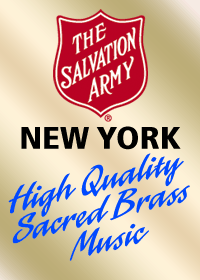CD: The Music of Bliss and Howells
Brighouse and RastrickWorld of Sound

CD of the Year 2019
THE MUSIC OF BLISS AND HOWELLS
Brighouse and Rastrick Band
Conducted by Dr David Thornton
Buy this CD here!
Brighouse and Rastrick presents an impressive project archiving the music of Arthur Bliss and Herbert Howells, which includes the well-known and loved favourites, alongside showcasing works that have received comparatively less attention over the years.
Arthur Bliss’s 1967 Fanfare for the Lord Mayor of London provides a brief, traditional, yet suitably declamatory start to the disc - the balanced sound of the band setting the tone for things to come. Three Figures follows - a lesser-performed work of Howells, composed in 1960 to pay tribute to three visionaries, Samuel Cope, John Henry Iles, and William Rimmer.
The musical language is familiar, though more modal compared to the direct style of the better-known Pageantry, and the band’s fine reading of the three contrasting movements provides a fascinating insight into Howells’s later compositional development.
Fans of Bliss’s popular Kenilworth will be pleased indeed with Brighouse’s performance here. The lively regal pomp contrasts so successfully with spacious melodic lines and outstanding solo playing - cornet and euphonium in particular. Dominic Longhurst’s recent transcription of Howells’s Requiem Aeternum suits the brass band medium perfectly, the spacious, floating music evoking a beautiful dream-like atmosphere. The bold fanfare lines of Bliss’s Greetings to a City provide an effective contrast, before Ceremony of the Red Bishops from Four Dances from Checkmate - delivered delicately here by Brighouse and Rastrick.
The Belmont Variations is another popular Bliss work given a spirited treatment as MD, David Thornton, skilfully captures the varied nuances of each variation. There is yet more fine solo playing to enjoy - the cornet and euphonium contributions making for particularly fine listening.
The disc closes with Howells’s most iconic work, Pageantry. The fanfares of Kings Herald are satisfyingly crisp, with a rousing tempo effectively setting the regal scene. Cortege is sensitively balanced, allowing the music to flow naturally and, finally, Jousts opens with an excellent solo cornet before capturing the animated spirit of the music most successfully.
In the disc notes, Philip Wilby offers an interesting insight into the lives of Bliss and Howells from his own personal experience, though overall in the booklet, more information about the individual works would have been appreciated. In all, the repertoire alone will make this disc highly desirable for any brass band enthusiast and, when combined with playing of such quality from Brighouse and Rastrick, it becomes a necessity.
THOMAS DUNNE





.gif)







